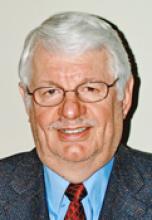With Andrew Reesor-McDowell, moderator of Mennonite Church Canada, we are concerned about declining giving to centrally planned ministries of MC Canada.
Giving to such ministries, he documents, has decreased by 13 percent over the past seven years, a downward statistic that is also reflected in congregational giving to area church ministries. If this trend continues, he predicts some of these ministries are “likely unsustainable.” At the same time, giving is increasing to non-Mennonite organizations.
Why this paradox? Put side-by-side, these two observations would indicate there is not a dearth of dollars, but a change in attitude towards supporting institutional ministries, worthwhile as they certainly are. At a deeper level, there is a message here.
We don’t argue that the partnerships Reesor-McDowell lists as the infrastructure to carry out what is presumed to be our collective vision and mission—both in resourcing our congregations and in carrying out a global mission—contain anything but the highest quality of people and are efficiently managed.
In fact, this downward trend in giving to “central” ministries has little to do with the quality and worthiness of the mission. The “system” doesn’t need fixing, but the assumptions about what motivates us “faithful disciples” might need some major adjusting.
What is going on here is a seismic shift in the postmodern culture. We suspect a closer examination of the demographics of the present Mennonite donors is that most of the support comes from those over 50 years of age, whose self-identity is wrapped around a loyalty to the church’s mission at both the national and congregational levels.
Leadership is now shifting to a younger generation, whose interests and professional involvements are broader and more integrated into the dominant culture. Futurist Leonard Sweet has divided the generations into “immigrants” and “natives.” Immigrants, he says, are those born before 1962, and can be defined as hopelessly groping around in the “Gutenberg age,” tied to print media, having strong loyalty to institutions and appreciating order in their lives. Natives, on the other hand, are younger, get their information/entertainment and social direction from cyberspace, have few loyalties and even less regard for authority/institutions, and are comfortable with chaos.
“Immigrants are word-based. Natives are image-driven,” according to Sweet. “Say ‘image’ to any immigrant, and they think superficial, shallow and uncritical.”
Examine, for instance, Reesor-McDowell’s assumption that “MC Canada’s ethos does not welcome aggressive fundraising.” That may well be a dated notion. In the broader church arena, where many voices are clamouring for support of what they consider worthwhile missions, the more emotional the appeal, the more and bigger the response.
Samaritan’s Purse and World Vision are only two examples of effective non-Mennonite ministries with sophisticated communications networks that tug at the senses first, then work their way into your pocketbook in not-too-subtle ways.
The dollars are here. Donors usually give to what they perceive is a value and in line with their convictions and interests. Just look at the overwhelming response to the Haiti disaster.
While it may be difficult to represent what Christian Formation does at the national level—offering multiple models of pastoral leadership and doing a congregational profile—in compelling images that make people reach for their pocketbooks, MC Canada will have to try harder to do just that.
Meet your new board member
Jim Moyer of Lethbridge, Alta., a retired research scientist with Agriculture Canada, is filling the unexpired term of Doris Daly Haysom of Turner Valley, Alta., who resigned in early 2010 as a representative of MC Alberta on Canadian Mennonite’s 12-member board. Moyer, a member of Lethbridge Mennonite Church, where he has served as council chair and vice-chair over the years, is married to Beth Moyer; they are the parents of two adult daughters: Marie and Joanne.





Add new comment
Canadian Mennonite invites comments and encourages constructive discussion about our content. Actual full names (first and last) are required. Comments are moderated and may be edited. They will not appear online until approved and will be posted during business hours. Some comments may be reproduced in print.